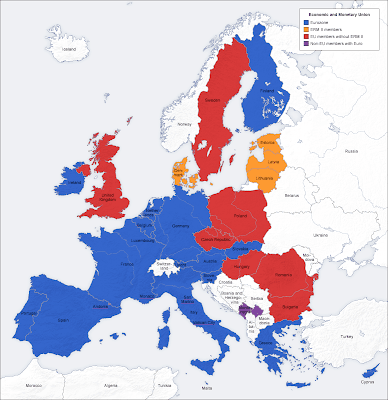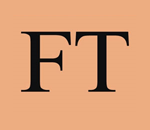The European Union
Established in 1993
27 member states
16 member states participate in the Euro
500 million citizens
30% of Gross World Product
The EU began as an alliance at the Schuman Treaty of 1950, a coal and steel trade agreement with Belgium, France, Italy, Luxembourg, Netherlands & West Germany. In 1957, the same core countries signed the Treaty of Rome which continued to be revised until the official EU formation in 1993. We now have an “enlarged Europe” including Eastern countries.
Blue indicates the member states that use the Euro currency.
The UK retains their original currency. Non-member states Norway, Switzerland and Lichtenstein participate only in “single market” for leveling of prices. Iceland participates in single market but has now requested to join.

Belgian EU President Herman Von Ronpuy was elected to a 2 1/2 year term in 2009.
Within the EU are the following agencies
The European Parliament: works to pass legislation
The European Council: advises Parliament and controls the “Common Foreign and Security Policy”
The European Commission: initiates the legislation
The European Court of Justice: upholds the legislation
The “European Commission” enforces laws but it is up to each country to regulate media. France has the Conseil supérieur de l’audiovisuel.
The media commissions are important because Europe has a long state controlled media tradition that has undergone deregulation - an increase in commercial and private media like cable, subscription and satellite.

Burton, Cathie & Drake, Alan (2004). The European Media Landscape in Hitting the Headlines in Europe.
The European news system began with Roman posting of flyers and the first newspaper theActaDiurna, meaning “daily acts.” The first newsprint was in Nuremberg Germany in 1457, followed by Britain’s paper The Weekly News in 1622. Contemporary Europe now has both nation and language specific news. There is 54% fluency in English, with Russian being the most spoken native and second language in Europe at 288 million speakers.
European News Media
The Financial Times
Since 1888, British pink paper the supplies facts and stories about the economic climate. It is known for remaining fairly neutral with some British Labour party support.

The International Herald Tribune
Based in Paris, it works in relationship to it’s owner the New York Times.
The Economist
A Scottish founded free market magazine published in 6 different country editions. It is known for being on the right, conservative side but is at times unpredictably radical. Importantly all the stories are anonymously.

Le Monde
The newspaper has a 2 million daily readership, larger than the New York Times. It is available in 120 countries in French.
European News Agencies
Reuters
Reuters started in Britain by carrier pigeons, then underground cables. It is now the most subscribed news source for European newspapers.
Agence France Press
16 Europeans offices with 2,000 writers. Circulates news in Europe in 7 languages
Associated Press
American based with about 250 world wide offices
Itar Tass
The former Soviet News agency now serving Russia and Eastern Europe
European News Channels
BBC World
While BBC in England is regulated public television, BBC World has advertising.
CNN
The European office is located in London. The French correspondant is AUP Professor Jim Bitterman.
Deutsche Welle
World news in German and English with some Spanish and Arabic languages for specific markets.
Euronews
Based in Lyon France, 7 language broadcast in voiceover only, currently the global leader
A combined French-German station that also reaches Austria, Belgium and Switzerland.

CNBC Europe
American NBC dependent news source targeting banks and hotels
Main European Media Centers
Brussels: Global politics happens here. Headquarters for the EU and NATO (North Atlantic Treaty Organization) and near the International Criminal Court in the Hague.
London: Leader in global news and center for the Foreign Press Association.
Paris: Claims largest number of foreign correspondents
Strasbourg: The European Parliament, the legislative branch of the EU, meets here and there are many human rights agencies and other offices based here.
Geneva: Home to the United Nations, World Trade Organization and Red Cross
France in Hitting the Headlines in Europe: A Country-By-Country Guide to Effective Media Relations (PR in Practice), 2004: 117-120.
The French have only 18 newspapers per 100 adults, compared with 35 in Germany and 72 in Norway.
Best selling paper is L’Equipe and regionally Ouest.
Biggest mainstream paper is Le Parisien and Le Monde second.
Liberation is a leftist, liberal paper
Le Figaro is a right paper
There is only one national Sunday paper: Le Journal du Dimanche
Paris Match - leisure and celebrity
Courrier International - global news
Agence France Press - news agency
France 3 –TV
Europe 1 – Radio
Radio France International - public























No comments:
Post a Comment